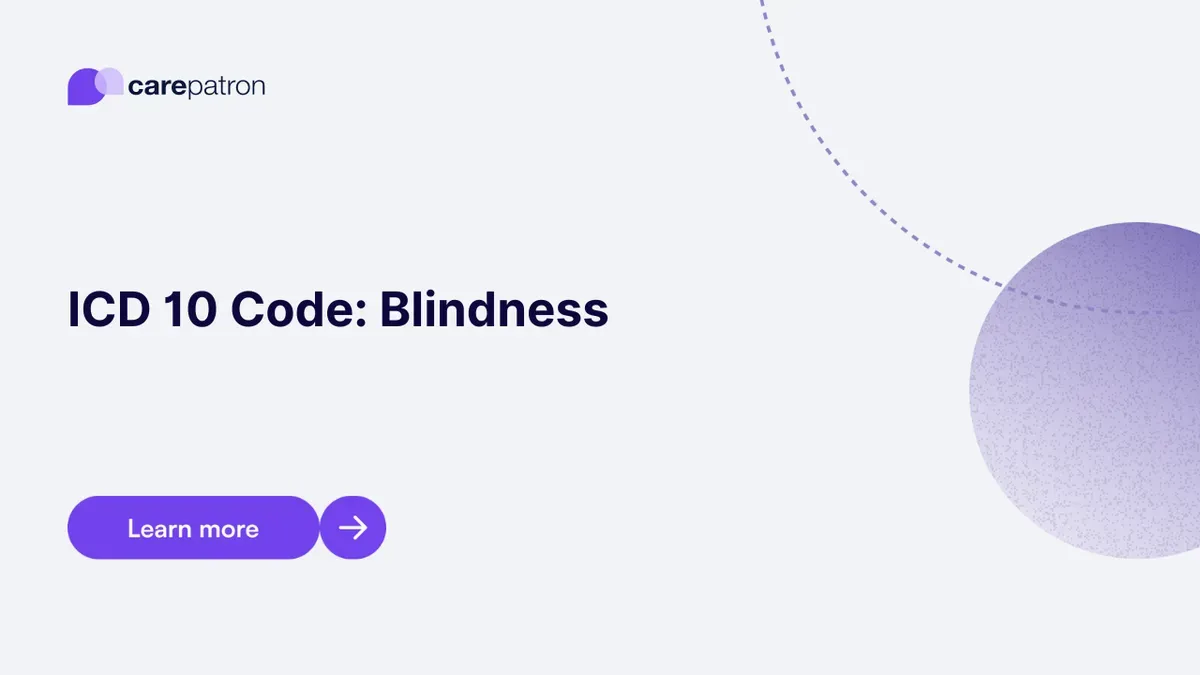
Blindness ICD-10-CM Codes
Navigate the 2023 guide on Blindness ICD-10-CM codes. Understand the specific codes, their clinical descriptions, and their billing implications.
Use Code
Commonly asked questions
The leading causes of blindness include age-related macular degeneration, glaucoma, cataracts, diabetic retinopathy, and injuries. Genetic conditions and infections can also lead to blindness.
Blindness is diagnosed through a comprehensive eye examination, including visual acuity and field tests, and imaging studies like optical coherence tomography (OCT) or fundus photography.
While some causes of blindness are irreversible, treatments are available for specific conditions. These may include surgeries for cataracts or glaucoma, laser treatments for diabetic retinopathy, or medications. Assistive technologies and rehabilitation can also help individuals adapt to vision loss.
EHR and practice management software
Get started for free
*No credit card required
Free
$0/usd
Unlimited clients
Telehealth
1GB of storage
Client portal text
Automated billing and online payments
